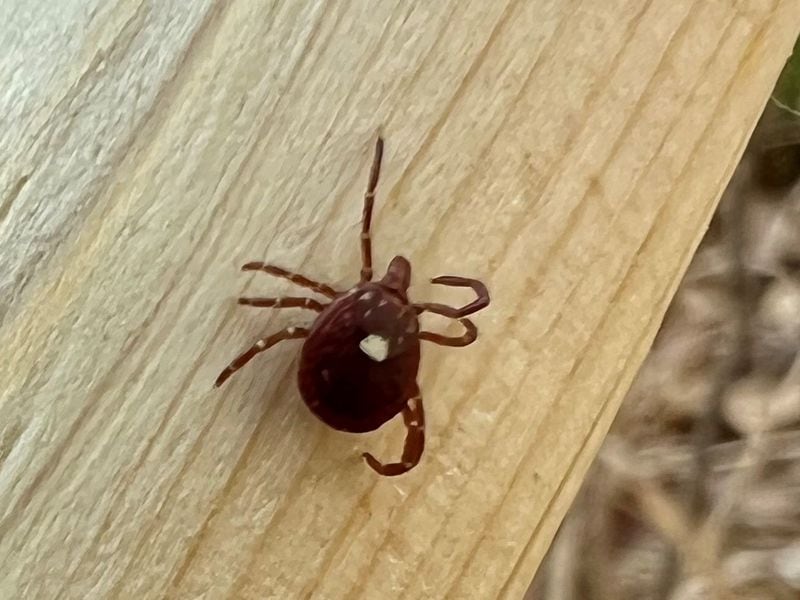Tick-borne virus transmitted in Georgia, study finds
“We assume that there’s a large number of people that might be getting exposed and aren’t having symptoms that are so serious,” he said. “The best we can do is to protect ourselves against tick bites, until we know we have a better a better idea of how serious it is.”
That means when going into the woods or long grass, protect the skin with socks and long pants, in order to prevent ticks from jumping on to the skin. Then when emerging from the woods, check the skin and behind the knees for ticks. The worst time for the ticks is from spring through summer and fall.
This is a lone star tick collected in Georgia for research on the Heartland virus. (PHOTO courtesy of Vazquez-Prokopec laboratory)
Credit: contributed

Credit: contributed
This is a lone star tick collected in Georgia for research on the Heartland virus. (PHOTO courtesy of Vazquez-Prokopec laboratory)
Credit: contributed
Credit: contributed
It’s also possible to get the virus by handling blood from an infected animal. White-tailed deer in Georgia have been found with antibodies to heartland virus.
With lone star ticks, the adult female develops a dot on its back, leading to the name “lone star” for both males and females. The ticks can be as small as a sesame seed or a grain of wheat.
Vazquez-Prokopec’ researchers found Heartland virus in about 1 out of every 2,000 ticks they collected. However, there are a lot of ticks out there, since one female can lay thousands of eggs at once. While they looked at Jones, Baldwin and Putnam counties for the study just published, they now plan to expand their research to 40 Georgia sites.
The goal of their research is to get ahead of the possibility that Heartland virus might cross over to another type of tick, the explosively invasive Asian longhorned tick, which is just now invading Georgia and might meet up with the lone star tick.
Read More: Tick-borne virus transmitted in Georgia, study finds

